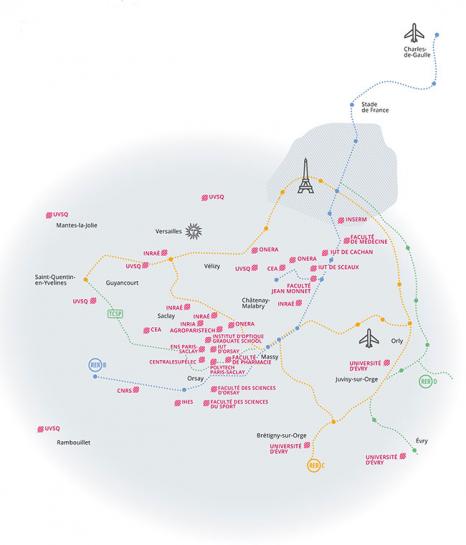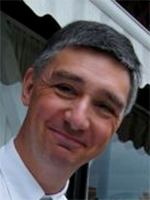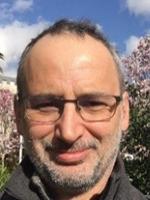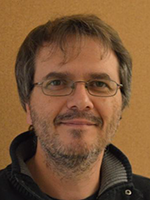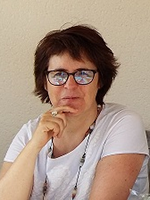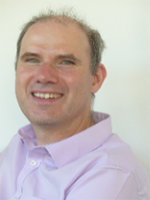Introduction to GS Chemistry
The Graduate Schools (or GS) are internal establishments at the University which focus on research, innovation and education at a Master's and PhD level. The Chemistry Graduate School coordinates education and research activities in the field of Chemistry taking place within the Université Paris-Saclay community. Its role is to participate in the development of the Chemistry education/research/innovation strategy within Université Paris-Saclay.
The key figures
|
300 300 |
950 Research and training professionals |
12 Faculties, establishments, organisations |
2 |
25 Research facilities (Laboratory, associations, LabEx) |
Management, providers and geographical locations
- Management of the Chemistry Graduate School is carried out by the Faculty of Science at Université Paris-Saclay.
- Providers are the Faculty of Pharmacy at Université Paris- Saclay, Université de Versailles St-Quentin-en-Yvelines, Université d’Evry and ENS Paris-Saclay.
- Partner National Research Organisations (NRO) are the CEA, CNRS and ONERA.
- Associated providers are AgroParisTech, CentraleSupélec, Polytech Paris-Saclay and IUT d'Orsay.
Subject scope
Professionals at the GS Chemistry are committed to taking up new challenges and providing innovative solutions to what is at the heart of both today's major societal and scientific issues, as well as those of the future. The activities of the research and education teams at GS Chemistry are based on the overarching concept of sustainable chemistry.
A disciplinary core - transdisciplinary opportunities
The GS Chemistry provides a comprehensive research training and innovation environment in all areas of the chemical sciences and as a result is unique amongst universities at a national level. Professionals at the GS Chemistry are supported by two assets, namely the first-rate facilities and infrastructures available within the Université Paris-Saclay community, as well as the internationally renowned research activities.
These activities are focused on issues upstream of the core business of the chemical industry, from accessing and transforming carbon resources to waste recovery and recycling. Downstream application areas which motivate professionals within the Graduate School are related to the major societal challenges of health and well-being, energy, the environment, heritage science and consumer goods, for example. Being able to meet each of these challenges is supported by the education components and the GS Chemistry academic and research staff, as well as by teams from other partner Graduate Schools. The development of projects in the upstream and downstream sections of our activities requires the involvement of transdisciplinary skills and skills and knowledge found within the Université Paris-Saclay community.
Objectives and strengths of the CHEMISTRY Graduate School at Université Paris-Saclay
Chemistry is first and foremost a rigorous scientific approach which involves disciplinary and interdisciplinary theoretical and experimental knowledge. A chemist is the master of a subject where the key themes of exploration, transformation, structuring and innovation define the fields of activity. These require knowledge of matter, analysis and understanding of phenomena, prediction of new properties and development of new applications.
Our objectives
- To develop analytical skills, creativity, rigour and adaptability
- To develop disciplinary and interdisciplinary skills
- To support students and researchers with the education to achieve a Master’s degree or a PhD
- To train professionals in the chemical sector capable of meeting the challenges and expectations of society in the fields of energy, health, the environment and communication.
- To promote student or researcher entrepreneurship
- To ensure the education/research continuum
- To develop and showcase research areas
- To promote strategic thinking and the profile of its members at a national and international level
The strengths of Chemistry at Université Paris-Saclay
- Education in and through research
- 3-, 4- and 5-year disciplinary and interdisciplinary training and development schemes
- An environment in which students and trainers/researchers are in close contact through teaching, practical work and projects, as well as laboratory placements, mentoring and tutoring.
- Supported by basic and applied research
- A high-quality technology park
- Strong partnerships and links with the socio-economic world
- National and international recognition and prominence of its professionals in the areas of education, research, innovation and development
Structure of the GS Chemistry
The GS Chemistry is built around an Education and Professional Integration Area and a Research Area. These two internal areas at the GS are complemented by cross-disciplinary activities for each unit: interdisciplinarity, development/innovation, international and platforms.
Professor at Université de Versailles Saint-Quentin and member of the Institut Lavoisier de Versailles. His research activities focus on the development of new synthesis tools and the study of the properties of planar, curved and helical molecular structures in material, environmental and life sciences. He teaches organic chemistry, heterocyclic chemistry, separation techniques and homogeneous catalysis at Bachelor and Master levels. His goals are to contribute to the profile of activities at the CHEMISTRY Graduate School in all its disciplinary and interdisciplinary diversity and richness.
Management Team
Director : Damien Prim
Professor at Université de Versailles Saint-Quentin and member of the Institut Lavoisier de Versailles. His research activities focus on the development of new synthesis tools and the study of the properties of planar, curved and helical molecular structures in material, environmental and life sciences. He teaches organic chemistry, heterocyclic chemistry, separation techniques and homogeneous catalysis at Bachelor and Master levels. His goals are to contribute to the profile of activities at the CHEMISTRY Graduate School in all its disciplinary and interdisciplinary diversity and richness.
Deputy Director of Education and Professional Integration: Rachel Méallet-Renault
Professor at the Orsay Faculty of Science Université Paris-Saclay and member of the Institute of Molecular Sciences, Orsay (ISMO UMR 8214). As a specialist in photophysics, she develops and defines light-sensitive nanoparticles or surfaces to investigate biological systems and address environmental and biomedical issues. She teaches general/mineral chemistry and physical chemistry from L1 to M2, including the training of future teachers. She also provides practical project work on luminescence, spectroscopy, sensors and organic nanoparticles. The professional integration of students and PhD graduates from the Graduate School of Chemistry is at the heart of her work. Her objectives are to contribute to the development of the new professions in chemistry of the future, and to promote and enrich the portfolio of initial and lifelong training courses.
Deputy Director of Research: Jean-Pierre Mahy
Professor at the Orsay Faculty of Science, Université Paris-Saclay He is also Director of the CHARMMMAT LabEx (Chemistry of Multifunctional Molecular Structures and Materials). As a member of the Orsay Institute of Molecular Chemistry and Materials (ICMMO), he leads a group focused on the design and synthesis of new metal complexes and the study of their interactions with biomolecules with applications in catalysis: bioinspired catalysis, multi-catalysis cascade reactions, supported catalysis, artificial enzymes. He teaches courses at the interface between Chemistry and Biology from the first year of the Bachelor's degree to the Master 2. His objectives are to promote the excellence of the research activity and the strong links between education and research found within the CHEMISTRY Graduate School.
Deputy Director in Charge of Links with the Coordinating Body: Isabelle Lampre
Professor at the Orsay Faculty of Science Université Paris-Saclay and member of the Chemistry-Physics Institute (ISMO UMR 8000). Her research activities focus on the primary phenomena and reaction mechanisms induced by light and ionising radiation. She teaches on the first year of the Bachelor's course up to the Master 2, including chemical kinetics, thermodynamics and radiation/matter interactions in particular. As President of the Chemistry Department at the Orsay Faculty of Science (FSO) from 2015 to 2020, she contributes to the activities of the GS Chemistry by ensuring links with the FSO, which is a coordinator faculty.
Deputy Director for International Relations: Pedro de Oliveira
Professor at the Orsay Faculty of Science Université Paris-Saclay and member of the Chemistry-Physics Institute (ISMO UMR 8000). He is manager of the Electrochemistry and Photoelectrochemistry Team and his research focuses on the applications of polyoxometalate-based systems for energy and the environment. He teaches Electrochemistry at L3 to M2. He is responsible for promoting the activities of the Graduate School internationally.
Deputy Assistant Director for Interdisciplinarity: Sébastien Floquet
Professor at Université de Versailles Saint-Quentin-en Yvelines, member of the Institut Lavoisier de Versailles and member of the Institut Universitaire de France. His research activities are at the interface between Chemistry, Biology and Physics. He is particularly interested in the development of ionic liquids based on polyoxometalates for the oxidative depolymerisation and valorisation of biomass residues, as well as in the use of coordination complexes based on transition metals to reinforce the immune system of bees. His objective as regards the GS Chemistry is to promote interdisciplinary projects.
Deputy Assistant Director for Innovation: Michel Schlegel
Research engineer and Director of Research at the Commissariat for Atomic Energy and Alternative Energies. His research activities focus on the design of protective anti-corrosion coatings (in particular by physical vapour deposition), their identification and their impact on the corrosion processes in the aggressive environments characteristic of the nuclear industry and new environmental technologies. His objective is to facilitate and promote development activities within the units which make up the Chemistry Graduate School.
Deputy Assistant Director for Experimental and Theoretical Platforms Jean-Yves Salpin
Director of Research at the CNRS and member of the LAMBE laboratory (UMR 8587) at Université d’Evry Paris-Saclay. A physical chemist by training, his research activities focus on the chemistry of ions in the gas phase and, in particular, their reactivity with organic or biological molecules, and combines mass spectrometry and quantum chemistry. He also teaches analytical chemistry. His objectives are to promote and increase the profile of the platforms hosted by laboratories at the GS, as well as at the interfaces with Chemistry.
Contact: gs.chimie@universite-paris-saclay.fr
A provisional office has been added to the management team to prepare and follow up on files relating to the Graduate School’s main areas of action. The office team comprises:
|
Serge Palacin : Responsibility ‘Links with Paris-Saclay Subjects’ |
Gilles Clavier : Responsibility ‘Links with the GS partners’ |
Eddy Dumas : Responsibility ‘Professional Training Courses’ » |
|
|
Claire Smadja : Responsibility ‘Interdisciplinarity - field of Life Sciences’ |
Guillaume Van Der Rest : Responsibility ‘Partnerships’ |
Board of the Graduate School
Composition
The composition is determined by the GS Chemistry Rules of Procedure and comprises seventeen elected members, including:
Four student representatives
- Two of the representatives are enrolled on a postgraduate course covered by Article L. 612-7 of the Education Code with the same number of alternates
- Two student representatives not belonging to the previous sub-college with the same number of alternates
Thirteen elected staff members (ITA, E, C and EC):
- Five members from college A from academic staff, lecturers and related researchers (professors and equivalent)
- Five members from college B from academic‐staff, lecturers and related researchers (other research teachers, lecturers, researchers and related staff)
- Three members of the BIASS college (engineers, administrative, technical, labour and service staff, library staff, associated with a laboratory or a training course outside the central services of the University, faculties, partner institutions and associate university institutions).
Fifteen ex officio members
- The Director of ED 2MIB or their representative, from the council of the doctoral school (appointed by the council of the doctoral school) or the doctoral college.
- The Director of the Master's track in Chemistry or their representative from the Master's track board.
- Eight representatives of partner providers and NROs (up to one representative per provider, designated by the provider).
- Two representatives of laboratories within the scope of the Graduate School, appointed by and from among the unit directors and/or their representatives within the Unit Directors’ College or their representatives.
- The Director and Deputy Directors in charge of education and research at the Chemistry Graduate School
Seven members appointed
by the Board of Directors of Université Paris-Saclay upon recommendation by the elected and ex-officio members of the Board to ensure representation of the diversity of the Chemistry Graduate School’s subject areas. When an appointed member ceases to hold office, he/she is replaced by a member appointed by the extended management committee of Université Paris-Saclay on the recommendation of the Graduate School Council.

